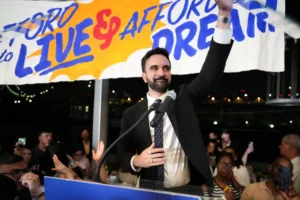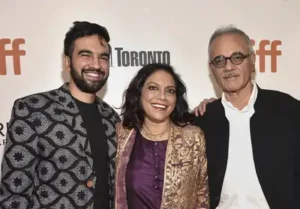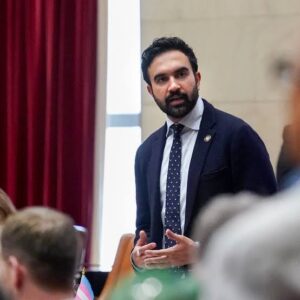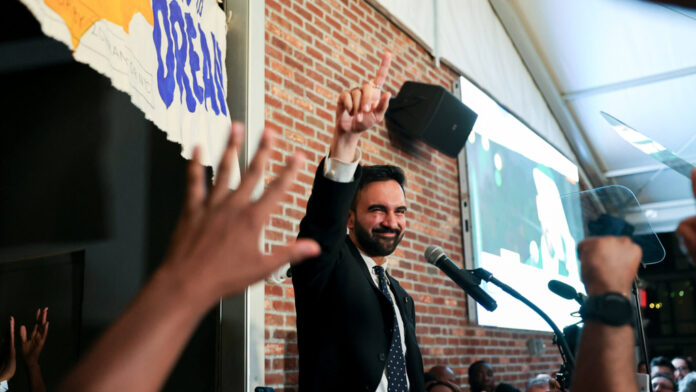
By Qalam Times News Network
In a moment that is being seen by many as a political and cultural milestone, Zohran Mamdani’s recent triumph in New York’s Democratic mayoral primary marks not only a turning point in local governance, but also a rare opportunity for deeper introspection — especially within segments of the American Jewish community.
To begin with, the accusations of antisemitism against Mamdani are unfounded. There exists no credible evidence to support these claims. In fact, Mamdani has publicly and unequivocally denounced antisemitism on numerous occasions, including on national platforms such as The Late Show with Stephen Colbert. His campaign, far from being exclusionary, garnered support from a wide cross-section of New Yorkers — including thousands of Jewish voters and volunteers.
This raises a critical question: if Mamdani were truly harboring bigoted views, would he have earned the trust of so many Jewish constituents? Are these voters naive or misguided — or are they simply engaging with the world through a different lens?
Indeed, Mamdani’s stance on Israel is forthright and critical. He has consistently advocated for Palestinian rights and solidarity with Gaza. Though some of his past statements — such as his interpretation of slogans like “globalize the intifada” — have stirred controversy and discomfort, they fall within the bounds of political expression, not hate speech. Notably, Mamdani has also affirmed Israel’s right to exist, demonstrating a capacity for nuance that is often ignored in charged political debates.

This is where the moment becomes instructive: for American Jews, especially those accustomed to equating criticism of Israel with antisemitism, Mamdani’s victory could serve as a reminder of Judaism’s own traditions of robust, respectful dissent. The Talmud itself upholds the notion of machloket l’shem shamayim — argument for the sake of higher moral principles. Disagreement, when approached in good faith, is not a societal flaw but a vital instrument of democracy and communal vitality.
In recent years, there has been an increasing tendency among certain powerful voices within the Jewish establishment to label all strong criticism of Israel as inherently antisemitic — even when such critiques come from Jewish individuals themselves. This trend has not only undermined public discourse but also eroded the credibility of genuine warnings about antisemitism. Accusations, when overused or misapplied, lose their power and their meaning.
Of course, antisemitism remains a serious threat. When criticism of Israeli policy veers into dehumanizing rhetoric, incites violence, or relies on antisemitic tropes, it must be condemned without hesitation. But not every use of words like “apartheid,” “genocide,” or “occupation” falls into that category. These are part of a global political vocabulary used to describe contested policies — not declarations of hate.
Significantly, Mamdani’s electoral win wasn’t anchored in foreign policy. His campaign focused predominantly on affordability — rent, food, and everyday necessities — concerns that resonate deeply with working-class New Yorkers across all communities. His proposals on housing and economic reform, unlike his opponent’s negative advertising blitz, struck a chord with voters struggling to make ends meet.

Interestingly, this focus on “kitchen table” issues mirrors the populist rhetoric that helped other politicians — including conservatives like Donald Trump — rise to power. But Mamdani’s progressive vision stands in stark contrast to such figures in both substance and spirit. He offers inclusive solutions rather than scapegoats, and his campaign was driven not by corporate interests but by grassroots energy and small donors.
While it’s undeniable that Mamdani’s pro-Palestinian stance energized many young voters, especially Muslims and progressives, that was only one dimension of a broader political message centered on justice, safety, and economic dignity. His ability to reframe public safety through a progressive lens is a notable achievement in itself.
This should offer reassurance to those concerned about the symbolic implications of Mamdani’s ascent. Voters were not endorsing a radical agenda on Israel — they were voting for affordability, accountability, and change.
Still, key questions remain: Will former Governor Andrew Cuomo mount an independent challenge in the general election? Can Mamdani translate campaign rhetoric into effective policy? Will his team bring the competence needed to govern a city as complex as New York? And how will his leadership shape intercommunal dynamics, particularly between Jewish, Muslim, and Black communities?
Only time will answer these questions. For now, however, this moment belongs to Mamdani’s supporters — many of them young, disillusioned voters for whom this election marks a reawakening of democratic hope. A progressive, elected against massive financial odds, has beaten the political machine.
As American democracy contends with polarization and deep institutional distrust, Mamdani’s victory suggests that it is still possible to win by speaking to people’s real lives. And perhaps more than that, it offers a timely lesson: disagreement need not divide us, if it is anchored in dignity, empathy, and truth.
© Qalam Times News Network
For thoughtful journalism, follow us on [social media links]







